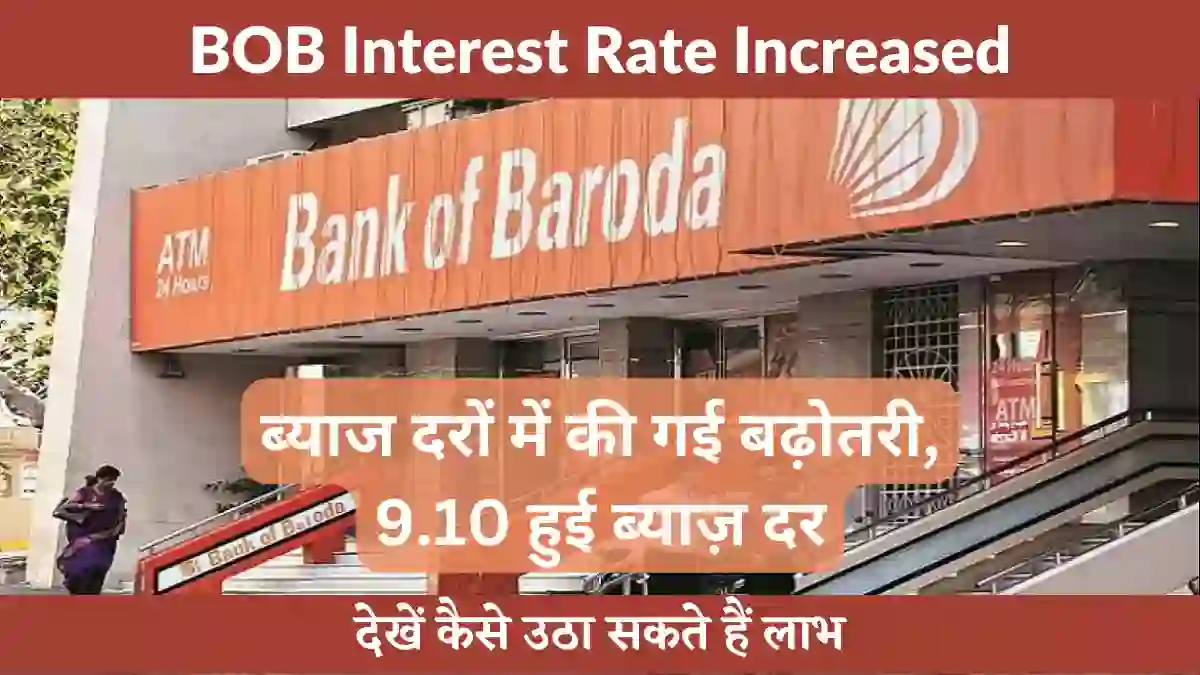BOB Interest Rate Increased: Bank of Baroda has announced to increase the interest rates up to 9.10 percent, giving significant benefits to its customers. This decision has come after the Reserve Bank of India (RBI) increased the repo rate. Sources reveal that the Bank of Baroda has adjusted the Baroda repo-linked lending rate, which has led to an increase in interest rates.
Contents
BOB Interest Rate Increased
BOB Interest Rate Increased: According to the official website of the Bank of Baroda, the increase in the lending rate of Baroda Repo Ltd will also increase the cost of the home loan. Baroda’s repo-linked lending rate has now been increased to 9.10%, and this change will be effective from February 9, 2023, for all banks across the country. It is important to note that the repo rate was relatively low in December, and Bank of Baroda adjusted its rates after the RBI hike.
Bank of Baroda has increased the lending rate on Baroda Repo Ltd from 8.85% to 9.10% with effect from today. This adjustment was done after the increase in the repo rate by the Reserve Bank on December 8, 2022. In addition, the interest rates for non-employee workers have increased from 8.85% to 10.45%.
BOB Interest Rate Increased
Bank of Baroda also raised interest rates on domestic retail fixed deposits by 15 to 65 basis points (0.15% to 0.65%) for amounts less than Rs 2 crore. These new rates came into effect on December 26, 2022. After increasing the basis points, the Bank of Baroda offers interest rates ranging from 3% to 7% for common citizens for various tenures ranging from 7 days to 10 years.
The interest rates of the Special FD Baroda Tricolor Plus Deposit Scheme have also been increased. General customers of Bank of Baroda’s Tiranga Plus deposit scheme will now get interest rates up to 7.05% for 399 days, while senior citizens will get the benefit of 7.55% interest rates.
What is Repo Rate?
The repo rate is the rate at which RBI lends to other banks, while the reverse repo rate is the rate at which banks pay interest to the Reserve Bank of India for keeping money. A decrease in the repo rate reduces the EMI of the loan, while an increase in the repo rate increases the EMI.
The Repo Rate Increased by 6 Times in a Year
The Reserve Bank of India has increased the repo rate six times in the current financial year, which is a total increase of 2.50 percent. The repo rate is now 6.50 percent. These rate hikes have resulted in increased EMIs for various loans such as home loans, auto loans, personal loans, and education loans.
The RBI’s decision to hike the repo rate by 25 basis points is aimed at controlling retail inflation in India. In December 2022, RBI has already increased the repo rate by 35 basis points. The Financial Institution Printed Policy Committee (FIPPC) has projected the GDP growth rate for the next fiscal year, 2024, to be 6.4 percent.
Additionally, another institution has projected the retail inflation rate to be 5.3 percent in 2024. The increase in repo rate by RBI will also increase home loan interest rates, resulting in higher EMIs for Bank of Baroda customers.

